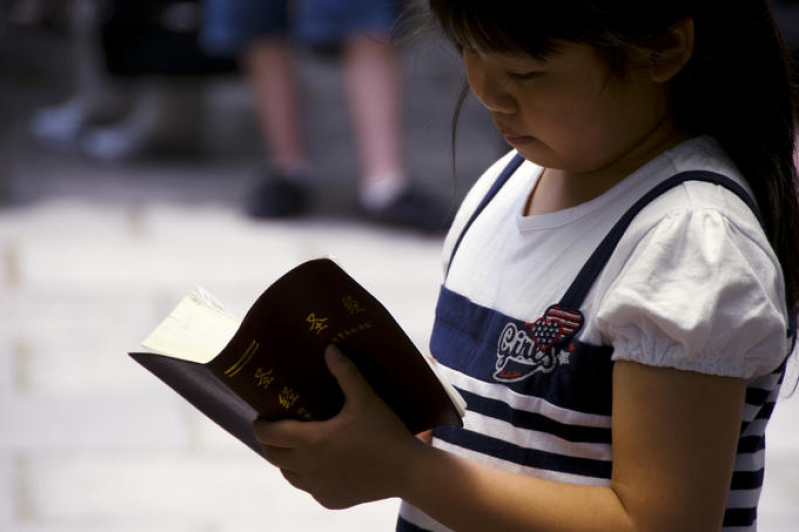
Christians in China's city of Wenzhou are ignoring the official ban on Sunday School classes -- and have vowed to continue teaching children about Jesus until believers surpass the number of atheists in the country.
According to a new report from Reuters, Churches in Wenzhou -- known as "China's Jerusalem" due to its sizable Christian community -- started teaching children in private homes or at other venues after authorities outlawed Sunday School earlier this year.
In her house, "faith comes first, grades come second," one parent surnamed Chen told the outlet, explaining that children must attend Bible classes because state education fails to provide sufficient moral and spiritual guidance.
"Drugs, porn, gambling and violence are serious problems among today's youth and video games are extremely seductive," she told Reuters. "We cannot be by his side all the time so only through faith can we make him understand (the right thing to do)."
She added, "There will definitely be more Christian believers in the next generation. The ability for the Christian faith to be inherited and passed on is ever growing."
In addition to banning Sunday Schools in some districts of Wenzhou, children in other regions were barred from taking part in faith activities, including summer camps. At the time, authorities cited "high temperatures" as a possible health hazard.
Reuters notes that while Chinese law officially grants religious freedom for all, including children, regulations on education and protection of minors also say religion cannot be used to "coerce" children to believe. In September, officials released new rules expanding state oversight of religious education nationwide.
Chinese officials previously warned Christian parents that if they continue to take their children to churches not approved by the government, their offspring will be banned from attending college or serving in the military, and will face legal action.
The government sanctioned Protestant church, the Three-Self Patriotic Movement, specifically forbids its members from "brainwashing" teenagers with religious beliefs and bringing children to religious activities.
"The government is trying to control ideology," a local Christian surnamed Zhang told persecution watchdog China Aid. "During [Chinese Presidents] Jiang Zemin and Hu Jintao's time, the government was tolerant toward preaching and missionary work. After Xi Jinping came into power, the government's grip on religion has strengthened."
In 2014, the government launched a campaign in Wenzhou to demolish "illegal" churches and tear down crosses. During the "beautification" campaign, as many as 360 crosses were removed from places of worship.
Hundreds of Christians, including pastors, lawyers, and activists, have been arrested for speaking out against the ongoing persecution, and many of them are still detained. Human rights attorneys who provide legal support to churches in China have also been subjected to police brutality and coerced into confessing on television that they have disturbed the peace, and jeopardized national security.
Despite such restrictions, there are now around 30 million Christians in China, while independent estimates suggest the number is about 60 million, most of whom are Protestants.
Sarah Cook, a New York-based analyst at Freedom House, an advocacy group, told Reuters that the Communist party can only do so much to control faith education.
"There are always going to be kids at home whose bedtimes stories are from the Bible," Cook said.







